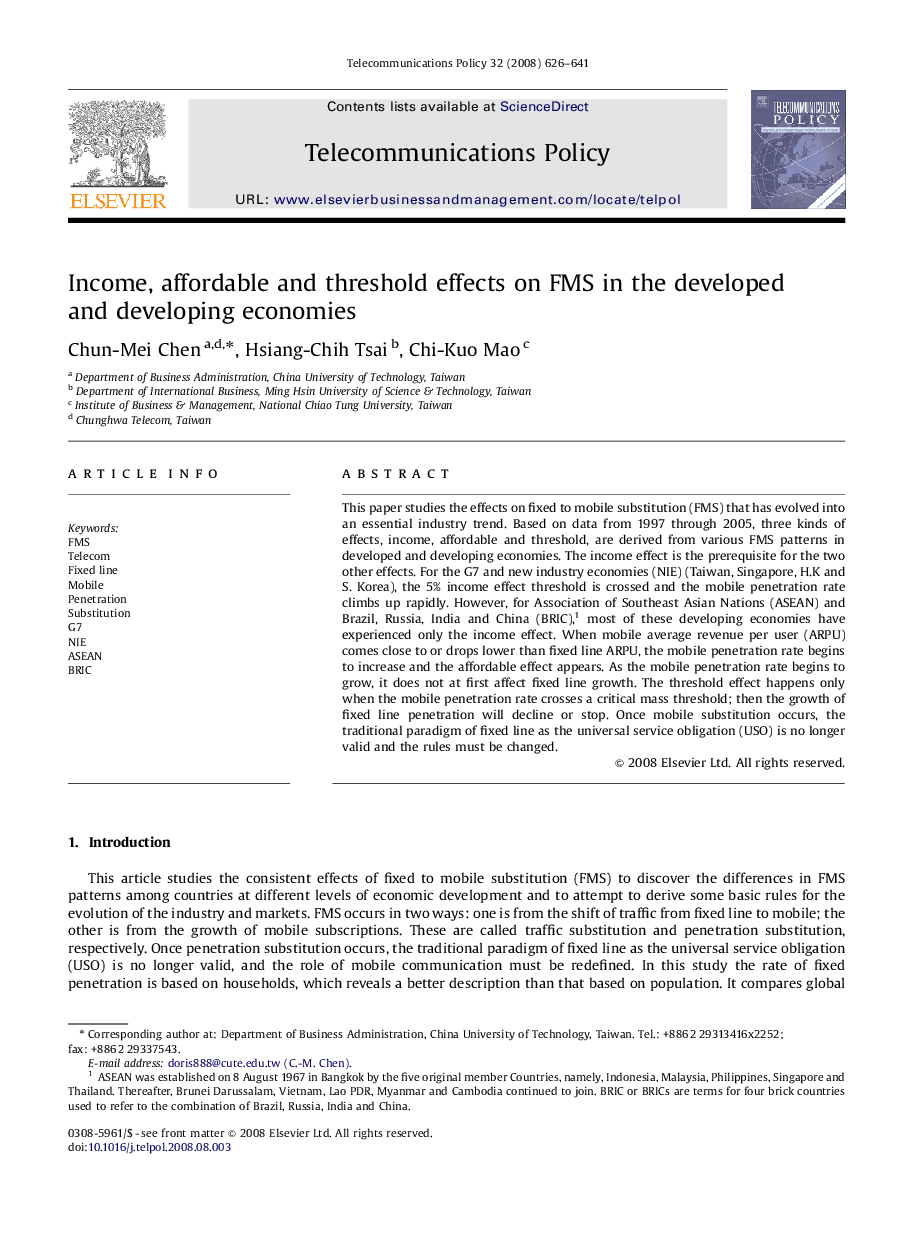| کد مقاله | کد نشریه | سال انتشار | مقاله انگلیسی | نسخه تمام متن |
|---|---|---|---|---|
| 557089 | 1451560 | 2008 | 16 صفحه PDF | دانلود رایگان |

This paper studies the effects on fixed to mobile substitution (FMS) that has evolved into an essential industry trend. Based on data from 1997 through 2005, three kinds of effects, income, affordable and threshold, are derived from various FMS patterns in developed and developing economies. The income effect is the prerequisite for the two other effects. For the G7 and new industry economies (NIE) (Taiwan, Singapore, H.K and S. Korea), the 5% income effect threshold is crossed and the mobile penetration rate climbs up rapidly. However, for Association of Southeast Asian Nations (ASEAN) and Brazil, Russia, India and China (BRIC),1 most of these developing economies have experienced only the income effect. When mobile average revenue per user (ARPU) comes close to or drops lower than fixed line ARPU, the mobile penetration rate begins to increase and the affordable effect appears. As the mobile penetration rate begins to grow, it does not at first affect fixed line growth. The threshold effect happens only when the mobile penetration rate crosses a critical mass threshold; then the growth of fixed line penetration will decline or stop. Once mobile substitution occurs, the traditional paradigm of fixed line as the universal service obligation (USO) is no longer valid and the rules must be changed.
Journal: Telecommunications Policy - Volume 32, Issues 9–10, October–November 2008, Pages 626–641